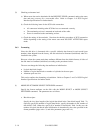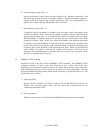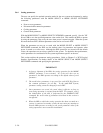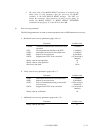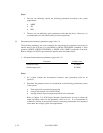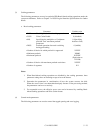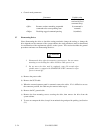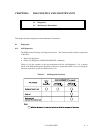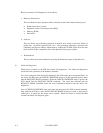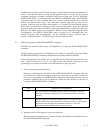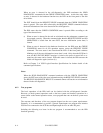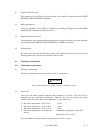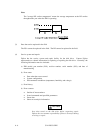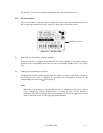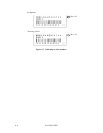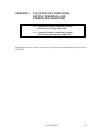C141-E035-03EN6 - 2
Brief test contents of self-diagnostics are as follows.
a. Hardware function test
This test checks the basic operation of the controller section, and contains following test.
• RAM (microcode is stored)
• Peripheral circuits of microprocessor (MPU)
• Memory (RAM)
• Data buffer
b. Seek test
This test checks the positioning operation of the disk drive using several seek modes (2
points seek, 1 position sequential seek, etc.). The positioning operation is checked with
confirming the physical address information by reading the ID field (LBA) from the data
block on track 0 after completion of the seek operation to the target cylinder.
c. Write/read test
This test check the write/read function by using the Internal test space of the disk drive.
(1) Initial self-diagnostics
When power is turned on, the IDD starts initial self-diagnostics. The initial self-diagnostics
checks the basic operations of the hardware functions.
If an error is detected in the initial self-diagnostics, the LED on the drive front panel blinks. In
this status, the IDD posts the CHECK CONDITION status to all I/O operation requests other
than the REQUEST SENSE command. When the CHECK CONDITION status is posted, the
INIT should issue the REQUEST SENSE command. The sense data obtained with the
REQUEST SENSE command details the error information detected with the initial self-
diagnostics.
Even if CHECK CONDITION status and sense data are posted, the LED continues blinking.
Only when the SCSI bus is reset, the BUS DEVICE RESET message is issued, or the power is
turned off or re-turned on, this status can be cleared. When this status is cleared, the IDD
executes the initial self-diagnosis again.



